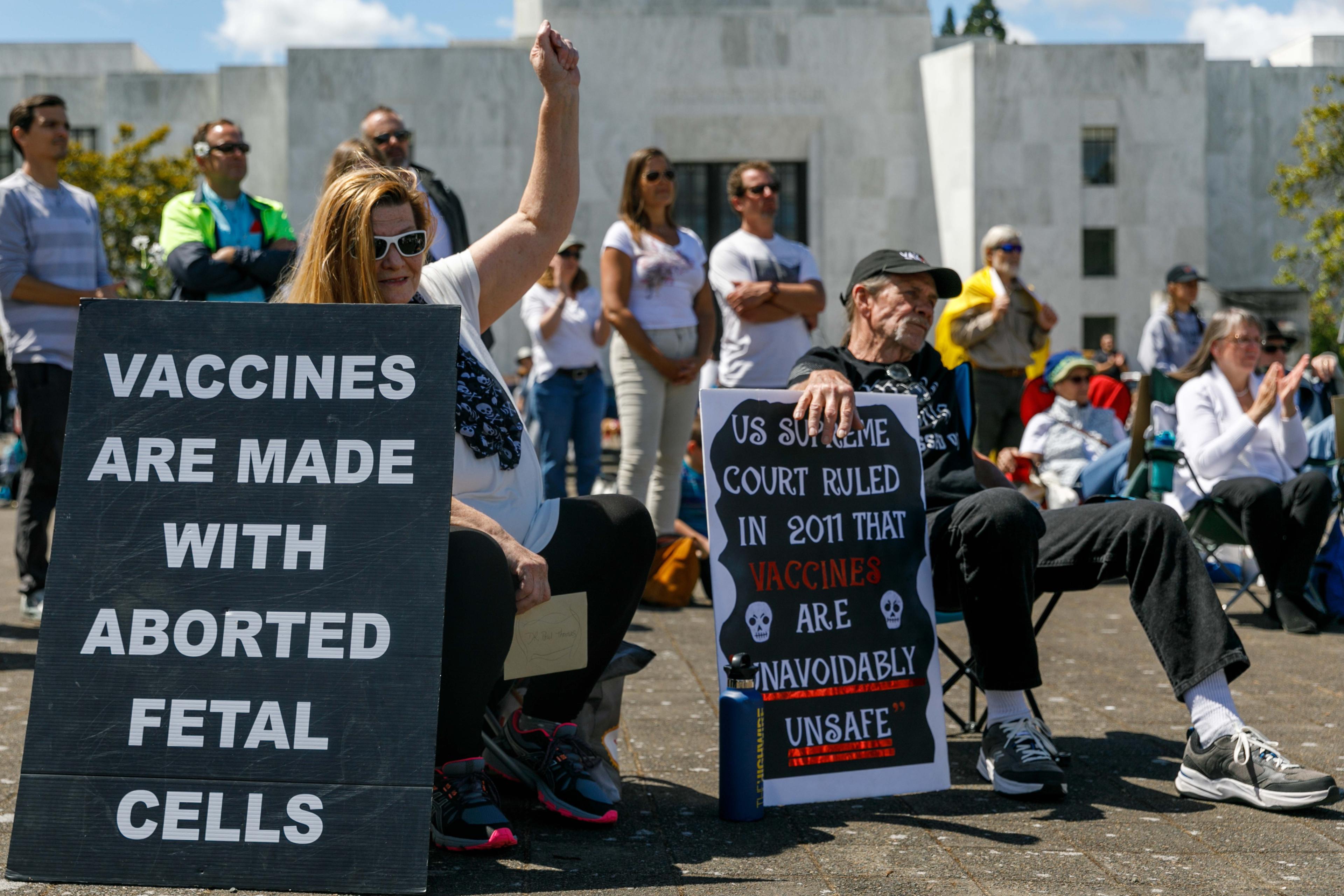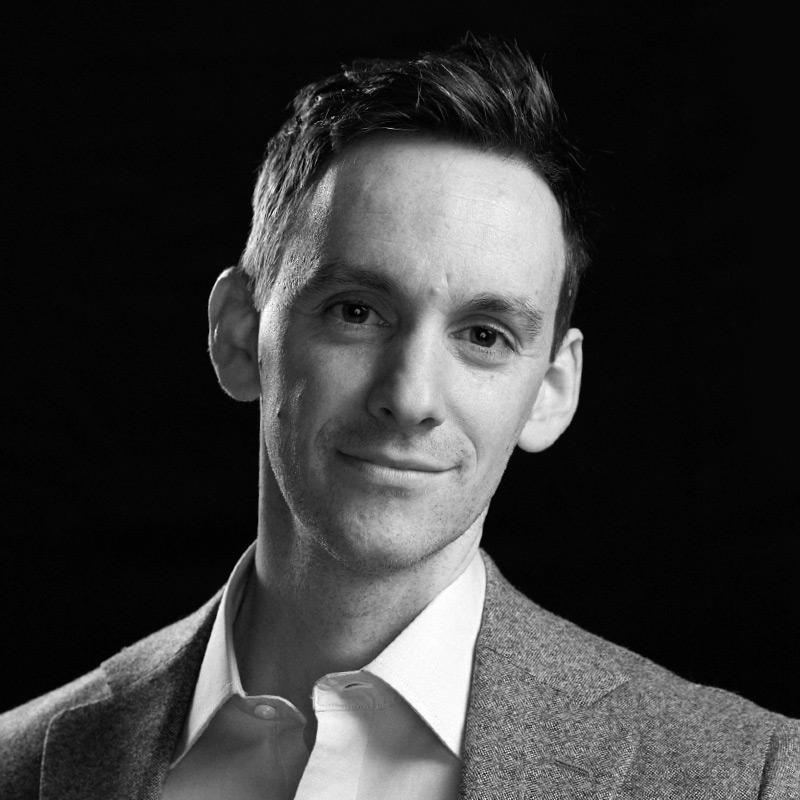
Are conspiracy theories more popular than ever? Are Americans more conspiratorial than ever? Are conservatives more conspiratorial than liberals? Joseph Uscinski is a political scientist at the University of Miami and one of the nation’s preeminent experts on the psychology of conspiratorial thinking and the history of conspiracy theories in America. He has some counterintuitive and surprising answers to these questions. Today, he and Derek discuss—and debate—the psychology and politics of modern conspiratorial thinking.
If you have questions, observations, or ideas for future episodes, email us at PlainEnglish@Spotify.com.
In the following excerpt, Joseph Uscinski explains to Derek what distinguishes a conspiracy theory from a counternarrative and what rises to the level of a conspiracy vs. what doesn’t.
Derek Thompson: So you’re a political scientist who has studied conspiracy theories. You’ve written books about conspiracy theories. This is a question that I like to ask people who study this field closely: What makes a good conspiracy theory? What are the basic ingredients of a conspiracy that thrives in the crowded marketplace of ideas?
Joseph Uscinski: It’s interesting that you equate good with thriving. A lot of people might define a good conspiracy theory as one that doesn’t go anywhere, or maybe one that eventually turns out to be true. But rarely do I hear “good” assigned to a conspiracy theory that spreads everywhere and convinces everyone. Let me change the wording of your question to make it more practical for your listeners. Let’s say you get laid off of your job and need a new career, and you want to become a conspiracy theorist and make money doing it. Well, we see lots of people doing it now, so why not you? Right? And you want to get that first group of conspiracy theories out there to start building your audience. Which ones are you going to go with?
I mean, there are several strategies you could use. You could use theories that attack the biggest villains that most people already don’t like and all are familiar with. So you could conspiracy theorize about the big banks and the political parties and the establishment. Or if you want to go after a more niche audience, you could start talking about lizard people or conspirators from other dimensions or things like that. It’s up to you where you think the market is going to best suit your strategy, but that’s the advice I would give to a young, aspiring conspiracy theorist.
Thompson: Interesting. So fish in crowded ponds, find the kind of villains that your audience might already have skepticism about, suspicion about, and assign blame to those preexisting villains. Seems like an interesting strategy.
Uscinski: Yeah, there’s rarely anything new under the sun, and that’s definitely the case with conspiracy theories. As kooky as they seem, the ones that make headlines, they’re just a rehash of the same stuff we’ve seen forever. So rarely do I see anything new. Most of it’s like a Mad Lib where you take the same conspiracy theory and change one noun or change a verb, and voilà, it’s all new, but it’s the same thing repeated over and over and over and over again. You could use that to your advantage if you want to be a professional conspiracy theorist and just say, “OK, a whole bunch of people already don’t like X. Let’s just say they’re up to some new thing and rinse and repeat.”
And you can do that. And that’s what a lot of conspiracy theories are. It’s, “That group is up to this.” And then the next day when something bad happens, “Oh, that group did it.” And the next day when something else bad happens, they say, “Oh, well, that group did that too.” And you just keep going. And obviously Jewish conspiracy theories make a very good example of this. But a lot of them are like this. People were shocked when COVID started and people were talking about 5G spreading COVID, but there were people who believed conspiracy theories about cell phones prior to that, and they believed all sorts of conspiracy theories about diseases prior to COVID. So none of it was really new or creative.
Thompson: How do you distinguish conspiracy theories from, let’s call them, counternarratives that turn out to be more plausible than initially assumed? So, for example, maybe some listeners are thinking, “During the COVID pandemic, I thought from the get-go that this was a virus that escaped from a lab and not a virus that originated from a wet market.” And initially, I feel like the prevailing wisdom of mainstream news, and maybe even mainstream scientists, was that one of these theories was a conspiracy—that it came from a lab—and another was the probable truth—that it came from the wet market. Now I think there’s a lot of entirely reasonable mainstream scientists who think, “Actually, we’re not really sure. It might be essentially a 50/50 proposition, and the odds that it came from a lab are much higher than we originally assumed or was originally reported.”
So that’s a counternarrative that became more plausible with time. Is it reasonable to distinguish these kinds of counternarratives from conspiracy theories?
Uscinski: Well, people like using the term “conspiracy theory” to mean any idea they don’t like.
Thompson: Yes. And so maybe in the answer to this question in distinguishing counternarratives from conspiracy theories, it’d be great for you to just describe what you consider to be a conspiracy theory.
Uscinski: So a conspiracy theory is an explanation of an event or circumstance that appeals to the actions of a small group of usually powerful people who are working in secret for their own benefit against the common good, and they’re doing it in a way that undermines our bedrock ground rules against the widespread use of force and fraud. And further, beyond the substantive aspect of it, there’s an epistemological aspect. And for me, that is that distributed bodies of experts have not found in favor of that idea with open data and evidence that can be openly challenged. I know that’s a mouthful, but essentially what I’m saying is in order to have a conspiracy theory, you have to be alleging a conspiracy happened. So some people will call Bigfoot a conspiracy theory, and I say, “Who’s Bigfoot conspiring against?” It’s not a conspiracy theory. And it has to have an epistemological aspect to it too, which is the experts in that area don’t take it to be true.
So that’s where I put the definition. But there is no one set definition. Just like the word “middle-class,” where everybody, sometimes they have a definition, sometimes they don’t. Sometimes they mean one thing, sometimes they mean another. And usually when politicians use it, they don’t want a definition at all. They want everyone to use the term however they want. And that’s how “conspiracy theory” often gets used in common parlance; it’s whatever I don’t like. So to me, it really depended on what you were claiming about the lab leak. If you said it accidentally leaked, not a conspiracy theory. That’s just something that happened. If you say it accidentally leaked and that’s being covered up, well, now it’s a conspiracy theory because we’re hiding vital, important information. If you say it was purposely released, then, yeah, conspiracy theory. But simply saying it was an accident doesn’t rise to the level of conspiracy theory. But I do take your point. I mean, the powers that be did not like those ideas, whether they officially counted under my definition or not.
I want to get back to one other word you used, which is “plausible.” Plausible is a subjective thing, and it’s driven by the same factors that drive whether you believe something or not. So, of course, ideas you believe you think are plausible, or ideas that you’re at least somewhat inclined to [believe] are plausible. I have a friend who said to me once, “This birth certificate with Obama thing, that’s completely implausible. So stupid. But the idea that Bush blew up the Twin Towers, well, that’s plausible.” And surprisingly, he was a person of the left, and what was plausible was just things that he personally believed or had sympathy for because of his own partisan biases. So I would challenge people: Tell me something you believe really strongly that you also think is completely implausible and probably false, maybe a religious idea. In which case, maybe you’re not really a believer. But for the most part, belief and plausibility go hand in hand. So when someone says, “This one’s more plausible than that one.” Well, thanks for your opinion. Who cares?
This excerpt was edited for clarity. Listen to the rest of the episode here and follow the Plain English feed on Spotify.
Host: Derek Thompson
Guest: Joseph Uscinski
Producer: Devon Baroldi
Subscribe: Spotify
Links:
Uscinski’s research page: Joseph Uscinski
“The psychological and political correlates of conspiracy theory beliefs”
“Fake news on Twitter during the 2016 U.S. presidential election”
“Right and left, partisanship predicts (asymmetric) vulnerability to misinformation”

